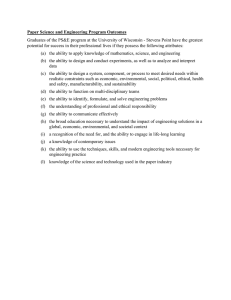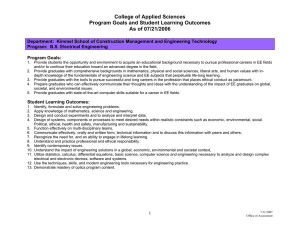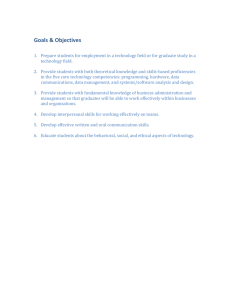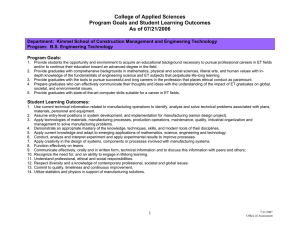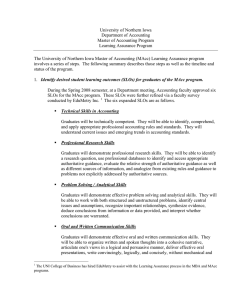University of Northern Iowa Department of Accounting Master of Accounting Program
advertisement
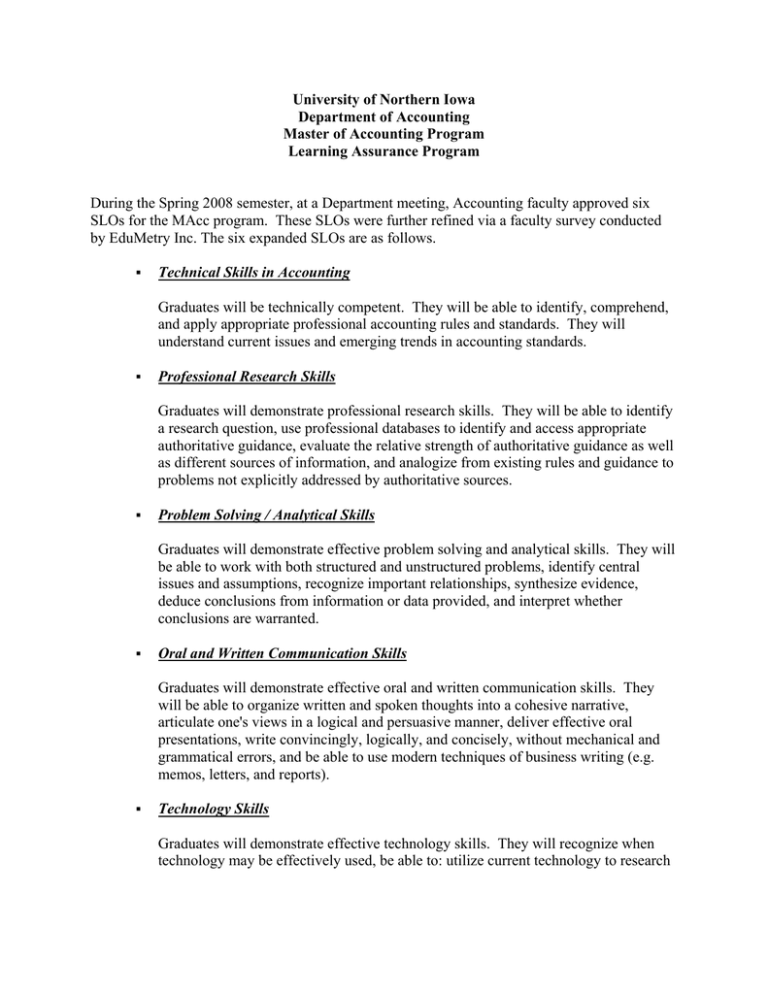
University of Northern Iowa Department of Accounting Master of Accounting Program Learning Assurance Program During the Spring 2008 semester, at a Department meeting, Accounting faculty approved six SLOs for the MAcc program. These SLOs were further refined via a faculty survey conducted by EduMetry Inc. The six expanded SLOs are as follows. Technical Skills in Accounting Graduates will be technically competent. They will be able to identify, comprehend, and apply appropriate professional accounting rules and standards. They will understand current issues and emerging trends in accounting standards. Professional Research Skills Graduates will demonstrate professional research skills. They will be able to identify a research question, use professional databases to identify and access appropriate authoritative guidance, evaluate the relative strength of authoritative guidance as well as different sources of information, and analogize from existing rules and guidance to problems not explicitly addressed by authoritative sources. Problem Solving / Analytical Skills Graduates will demonstrate effective problem solving and analytical skills. They will be able to work with both structured and unstructured problems, identify central issues and assumptions, recognize important relationships, synthesize evidence, deduce conclusions from information or data provided, and interpret whether conclusions are warranted. Oral and Written Communication Skills Graduates will demonstrate effective oral and written communication skills. They will be able to organize written and spoken thoughts into a cohesive narrative, articulate one's views in a logical and persuasive manner, deliver effective oral presentations, write convincingly, logically, and concisely, without mechanical and grammatical errors, and be able to use modern techniques of business writing (e.g. memos, letters, and reports). Technology Skills Graduates will demonstrate effective technology skills. They will recognize when technology may be effectively used, be able to: utilize current technology to research and solve problems, and be competent in word processing, spreadsheet, and presentation applications, Ethical Awareness Graduates will be prepared to recognize and respond to ethical questions encountered in the practice of accounting. They will be able to identify and apply legal and professional ethical standards applicable to the accounting profession, identify ethical concerns in situations commonly faced by accountants, identify alternative decisions in analyzing an ethical dilemma, be able to identify the impacts of business actions on external shareholders, identify trade-offs and make business decisions consistent with stated personal and professional values, and possess a strong work ethic. Spring 2008
